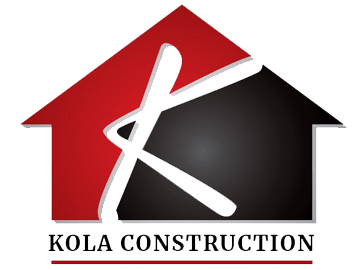Discover the benefits of resin bound driveways—durability, beauty, and easy maintenance for your perfect home upgrade!
Benefits of Resin Bound Driveways
Resin bound driveways offer a perfect blend of functionality and beauty, making them a popular choice among homeowners looking to upgrade their driveways, walking paths, or garden patios. Here are some of the key benefits

Permeability and SUDS Compliance
Resin bound driveways are permeable, allowing water to soak through the surface and into the sublayers. This permeability helps in preventing issues with pooling water and surface runoff, which is beneficial for drainage and environmental considerations. By meeting the requirements of Sustainable Urban Drainage Systems (SUDS) standards, resin bound driveways help manage flood risk and often eliminate the need for additional drainage systems.
Longevity and Cost-Effectiveness
Resin bound driveways are known for their longevity and cost-effectiveness. They can maintain their structural integrity and smooth appearance in various weather conditions, thanks to the high-quality polyurethane resin used in their construction. A properly laid resin driveway can last up to 25 years, requiring minimal repairs or maintenance over the years, making them more economical compared to other driveway types.
Visual Appeal and Variety of Colors
Resin bound driveways offer a visually appealing, smooth, and uniform finish, making them stand out aesthetically compared to other types of driveways. They use multiple layers of aggregate material to create aesthetically pleasing patterns, offering a smooth yet grippy finish without loose stones (Rezitt). Homeowners can choose from a variety of colors to match their home’s exterior, enhancing the overall curb appeal (SUDS UK).
| Feature | Benefit |
|---|---|
| Visual Appeal | Smooth, uniform finish |
| Variety of Colors | Customizable to match home exterior |
Explore the variety of resin bound driveway colours to find the perfect match for your home.
By understanding these benefits, homeowners can make an informed decision about upgrading to a resin bound driveway, ensuring a functional, durable, and visually appealing addition to their property.
Maintenance of Resin Bound Driveways
Maintaining a resin bound driveway is essential for preserving its functionality and visual appeal. Proper care ensures longevity and keeps the surface looking pristine. Here are some key maintenance practices.
Cleaning and Preventing Moss Growth
Routine cleaning of a resin bound surface is crucial. Sweeping with a stiff broom can remove leaves and other debris, preventing moss growth. Hosing down the surface with a standard jet-wash can help remove stains and other damaging elements (Resin Bonded Aggregates). It is recommended to sweep or power wash at least twice a year to avoid the build-up of detritus and prevent the growth of moss or algae.
| Cleaning Frequency | Recommended Action |
|---|---|
| Twice a Year | Sweep or power wash |
| As Needed | Remove leaves and debris |
Dealing with Chewing Gum and Weeds
Chewing gum can be a nuisance on resin bound driveways. It can be removed by using a freezing spray on the gum before carefully scraping it off with a wall scraper. It’s important not to dig beneath the gum to avoid damaging the surface.
Weeds can be removed by hand without damaging the surface. For deep-rooted weeds, an appropriate herbicide or weed killer should be used. Keeping the surface clean from leaf debris, twigs, and seeds will reduce the likelihood of weed growth and staining Resin Bound Aggregates.
Repair and Patching Solutions
Resin bound surfaces are flexible and resistant to cracking. However, over time, some repairs might be necessary. The Vuba Resin Bound Sealer can rejuvenate old and worn driveways, bringing back the original vibrancy of the stones. It is essential to ensure the resin surface is fully clean before application.
For patching, applying the Vuba Resin Bound Sealer can help create uniformity, reducing distinctive lines between new and old resin bound areas. Adding Crushed Glass to the sealer enhances slip resistance, making it suitable for worn surfaces or new driveways and pathways that require improved grip.
| Repair Type | Solution |
|---|---|
| Patching | Vuba Resin Bound Sealer |
| Slip Resistance | Add Crushed Glass to sealer |
Installation of Resin Bound Driveways
Installing a resin bound driveway requires careful planning and precision. This section covers the essential steps, from surface preparation to mixing and laying, and offers tips for a successful installation.
Surface Preparation and Base Requirements
Before installing a resin bound driveway, it is crucial to ensure that the base is strong and suitable for its intended use. The surface, whether concrete or tarmac, must be dry and free from dust or any contamination. This ensures proper adhesion of the resin-bound material.
- Base Strength: The base must be robust enough to support the weight and traffic it will endure. For driveways, a concrete or tarmac base is recommended.
- Surface Conditions: Ensure the area is dry and free from dust. Any moisture or contaminants can affect the adhesion of the resin.
- Temperature and Humidity: Test and record the ambient temperature, relative humidity, and ground temperature. The substrate should be at least 3°C above the dew point to prevent condensation and delamination (Resin Bonded Aggregates).
Mixing and Laying Process
The mixing and laying of the resin bound material are critical steps that require accuracy and speed to achieve a flawless finish.
- Mixing:
- Combine the resin and stone aggregate using a drill and paddle.
- Mix for a couple of minutes until the stone is thoroughly coated with resin and has a wet appearance.
- Adhere to the specific blends for the resin and dried aggregates; avoid variations to prevent inconsistencies.
- Complete the mixing process within 4 minutes to avoid color variation.
- Laying:
- Pour the mixed material onto the prepared surface.
- Use a squeegee or shovel to level the mixture.
- Float out the material with a plasterer’s float to ensure an even finish.
- Work quickly, as the resin starts to cure in 10-15 minutes (30 minutes with SUDwell™ All Weather Resin).
Tips for Successful Installation
Ensuring a successful installation involves following best practices and being mindful of specific details.
- Preparation: Thoroughly prepare the base and ensure it’s clean, dry, and contamination-free.
- Speed: Work efficiently during the mixing and laying process to avoid the resin curing too quickly.
- Temperature: Monitor the environmental conditions to ensure optimal curing and adhesion.
- Tools: Use the right tools, such as a drill and paddle for mixing and a plasterer’s float for smoothing the surface.
- Consistency: Maintain consistent mixing times and ratios to ensure uniformity in the finished surface.
Resin Bound vs. Resin Bonded Surfaces
When considering a new driveway, understanding the differences between resin bound and resin bonded surfaces is crucial. Both options provide unique benefits and cater to different needs and applications.
Key Differences and Applications
Resin Bound Surfaces:
Resin bound driveways are created by mixing resin with aggregate stones before laying them onto the surface. This method results in a smooth, permeable finish. The permeability prevents pooling water and surface runoff, making it ideal for drainage and environmental considerations (Rezitt).
| Feature | Resin Bound Surfaces |
|---|---|
| Appearance | Smooth and seamless |
| Permeability | Permeable |
| Applications | Residential driveways, garden paths, patios |
| Compliance | Meets SUDS standards |
Resin Bonded Surfaces:
Resin bonded driveways have a rougher, impermeable surface. This is achieved by scattering stones and gravel onto a layer of resin. The result is a single-stone layered surface that is durable and provides additional grip, making it suitable for high-traffic areas with minimal maintenance requirements (Rezitt).
| Feature | Resin Bonded Surfaces |
|---|---|
| Appearance | Rough and textured |
| Permeability | Non-permeable |
| Applications | High-traffic areas, commercial settings |
| Compliance | Not typically SUDS compliant |
Durability and Maintenance Comparison
Durability:
Resin bound driveways are known for their flexibility and resistance to cracking. They can maintain their structural integrity and smooth appearance in various weather conditions due to the high-quality polyurethane resin used in their construction.
Resin bonded surfaces, while durable, are less flexible and more prone to cracking under heavy stress. They are designed to withstand normal pedestrian or vehicular traffic but are not suitable for heavy goods vehicles unless specified in the construction plan.
Maintenance:
Resin bound driveways require minimal maintenance. They need to be swept or power washed at least twice a year to avoid the build-up of detritus and prevent the growth of moss or algae.
Resin bonded surfaces are low-maintenance but may require occasional repairs to address any cracks or damage. They are not prone to moss and algae growth due to their non-permeable nature.
| Aspect | Resin Bound | Resin Bonded |
|---|---|---|
| Durability | Flexible, less prone to cracking | Rigid, more prone to cracking |
| Maintenance | Sweep or power wash twice a year | Occasional repairs needed |
| Weather Resistance | High | Moderate |
For homeowners looking to upgrade their driveways, selecting between resin bound and resin bonded surfaces depends on their specific needs and preferences. Resin bound surfaces offer a permeable, visually appealing, and low-maintenance option, making them suitable for residential use. Conversely, resin bonded surfaces provide a durable and rougher finish, ideal for high-traffic areas and commercial applications.
Factors Affecting Resin Bound Surfaces
Understanding the various factors that affect resin bound driveways is crucial for homeowners looking to upgrade their driveways, walking paths, or garden patios. Here, we explore the quality of resin and aggregates, aggregate size and UV resin standards, and traffic suitability and applications.
Quality of Resin and Aggregates
The quality of resin and aggregates plays a significant role in the durability and aesthetics of resin bound driveways. High-quality resin should be sourced from manufacturers with BS EN UKAS ISO9001 quality management standards. This ensures that the resin meets stringent quality criteria, providing a robust and long-lasting surface.
The optimal resin-to-aggregate ratio is typically 7% resin to aggregate. Using kiln-dried natural aggregates is essential to prevent moisture contact and ensure slip resistance. The use of UV-resistant resin is also crucial to prevent discoloration and degradation over time.
Aggregate Size and UV Resin Standards
Aggregate size directly impacts the performance and appearance of the resin bound surface. Aggregates ranging from 6-10mm are commonly used, providing a balance between durability and aesthetics. Larger aggregates can be used in specific applications, such as tree surrounds, offering a cost-effective alternative to metal tree grilles.
| Aggregate Size | Common Use | Benefits |
|---|---|---|
| 6-10mm | General Surfacing | Durable, Aesthetically Pleasing |
| 10-20mm | Tree Surrounds | Permeable, Cost-Effective |
UV resin standards are equally important. UV-resistant resin ensures that the surface maintains its colour and integrity over time, even when exposed to sunlight. This is particularly important for outdoor applications where UV exposure is inevitable.
Traffic Suitability and Applications
Resin bound driveways are suitable for various traffic levels and applications. They are typically laid at a minimum thickness of 15mm to 20mm and can be applied to existing non-porous bases, provided there is adequate drainage.
| Traffic Type | Application | Suitability |
|---|---|---|
| Foot Traffic | Pathways, Patios | Highly Suitable |
| Light Vehicle Traffic | Driveways, Car Parks | Suitable (up to 7.5 tonnes) |
| Heavy Traffic | Industrial Areas, Heavy Goods Vehicle Parking | Not Recommended |
Resin bound surfaces are ideal for foot traffic and light vehicular traffic, such as car parks, driveways, and public squares. However, they are not designed to withstand heavy loads or frequent use by heavy vehicles. For areas expecting heavy traffic, alternative surfacing options should be considered.










